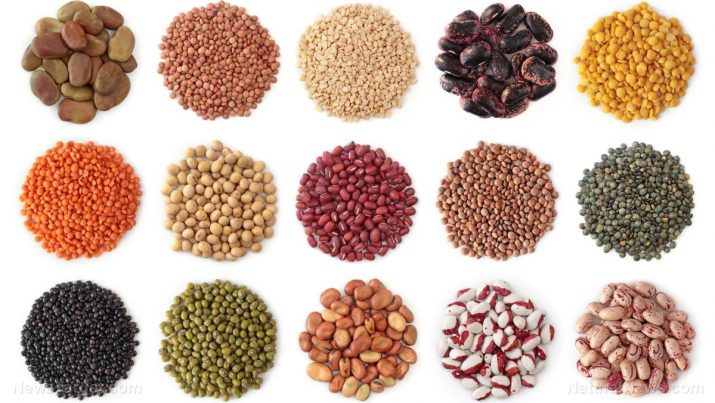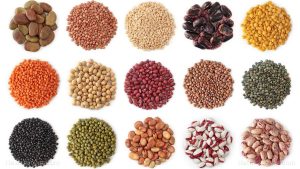
Beans – sources, health benefits, nutrients, uses and constituents at NaturalPedia.com
Wednesday, June 21, 2017 by Frances Bloomfield
http://www.naturalpedia.com/beans-sources-health-benefits-nutrients-uses-and-constituents-at-naturalpedia-com.html

Beans are a type of legume native to Central and South America. In modern times, beans are an important food source for people in all corners of the globe. Though cheap and easy to prepare, beans are not an unhealthy food; beans are packed with fiber, plant-based protein, and complex carbohydrates, allowing beans to fit firmly into different food groups. In the United States, the popular bean varieties are black beans, kidney beans, navy beans, fava beans, and pinto beans.

List of known nutrients
Different beans have different nutritional profiles; a high protein count is consistent among all beans, however. Beans are one of the best sources of plant-based protein, making them an invaluable part of a vegetarian diet. Unlike most animal proteins, beans are also cholesterol-free and provide little to no fat. Protein aside, beans can also contain the following nutrients:
- Biotin
- Calcium
- Copper
- Fiber
- Folate
- Folic acid
- Genistein
- Hemicellulose
- Iron
- Lignans
- Magnesium
- Manganese
- Molybdenum
- Pantothenic acid
- Phosphorus
- Phytic acid
- Phytosterols
- Potassium
- Pyridoxine
- Riboflavin
- Saponins
- Vitamin B1
- Zinc
Medicinal uses for beans
Beans are dense with fiber and antioxidants that work together to flush toxins and waste products out of the body. The antioxidants in beans are so potent, that the researchers behind a 2005 study found flavonol-rich beans to be efficient in reducing the risk of breast cancer. More than just cancer, beans can also help against:
- Benign prostate hyperplasia
- Constipation
- Diabetes
- Heart disease
- High blood pressure
- High cholesterol
- Hypoglycemia
- Inflammation
- Insulin resistance
Body systems supported by beans
Beans are nutritional powerhouses capable of fostering and nourishing various organs and parts of the human body. Consuming beans regularly can help:
- Adrenal gland
- Blood
- Digestive system
- Heart
- Kidney
- Liver
- Lungs
- Spleen
Ways to use beans
Beans are versatile and can be used in all kinds of dishes as the main component or an extra ingredient. Stews, pastas, salads, and even rice dishes can be enhanced by beans in terms of flavor and wholesomeness.
Though overall a healthy fruit, it should be noted that certain beans can be toxic if undercooked or eaten by people without certain enzymes. For example, people who lack the G6PD enzyme can suffer from favism if they consume fava beans. Favism is a condition that cause anemia. Furthermore, the most nutritious beans are dry beans. Canned beans are often packed with salted water and can be full of sodium.
Where to learn more
- Beans, Beans, the Magical Fruit..
- Beans: Fabulous Health Benefits, Weight Management and Nutrition at Very Low Cost
- Beans and Rice provide easy long storage, low costs, and high nutrition
- Beans do more than give you gas
- The importance of beans
Summary
Beans contain oligosaccharides, which are little sugars that can cause digestive problems like bloating or flatulence. As such, beans are one of the leading producers of intestinal gas in people.
The heart has a plenty to benefit from beans: soluble fiber controls blood cholesterol levels, saponins and phytosterols can lower cholesterol, while phytochemicals can lower the risk of heart disease.
Diabetics can consume plenty of beans since beans have a very low glycemic index yet a high fiber content.
Beans are thought of as a weight-loss-friendly food because of their low calorie count and great amounts of fiber and protein, two important nutrients for weight loss. Fiber fills up the stomach and causes blood sugar to rise slower; protein boosts metabolism and reduces hunger.
Sources include:
AuthorityNutrition.com
NutritionFacts.org
HuffingtonPost.com
Self.com
RD.com
TCM.ChineseCIO.com
NCBI.NLM.MIH.gov
Tagged Under: Tags: beans





